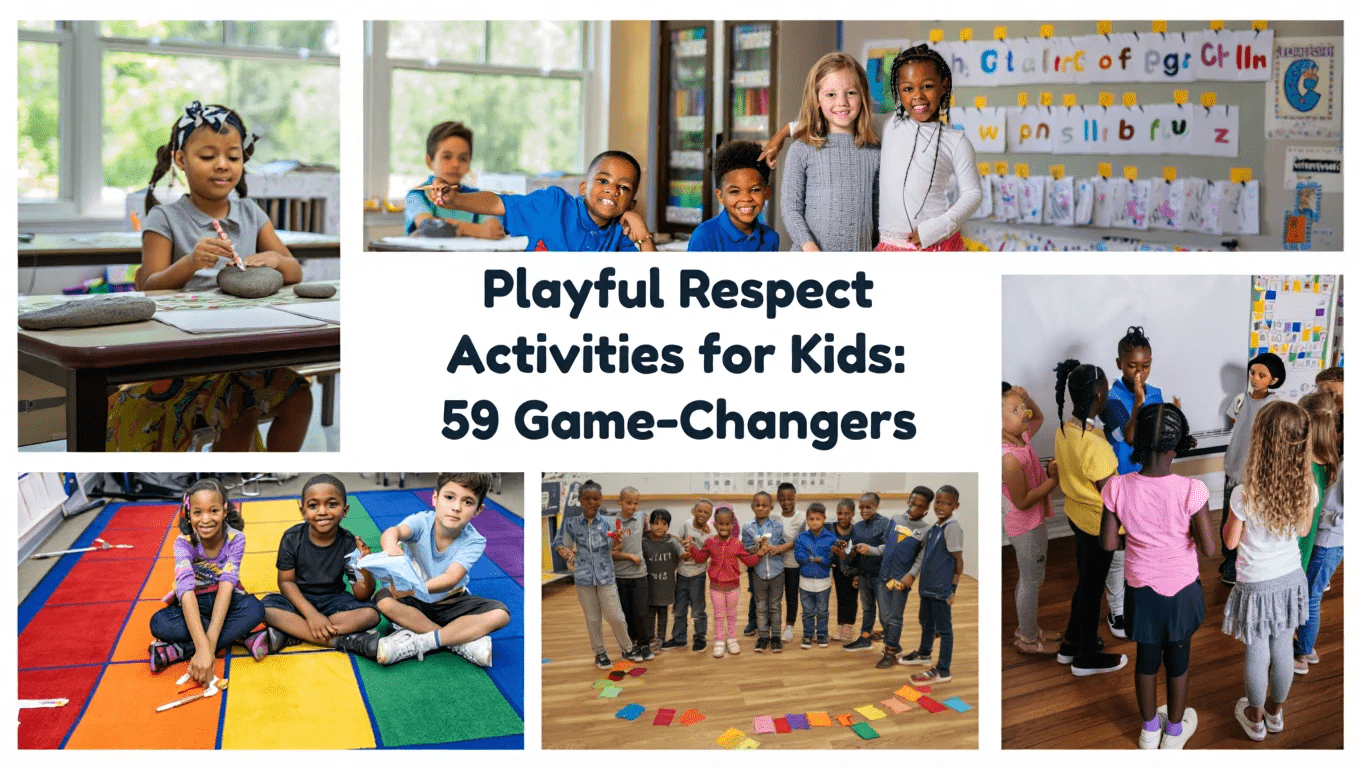
Picture a classroom where children listen attentively, resolve conflicts peacefully, and celebrate differences. This isn’t just a teacher’s dream—it’s the reality of children who have learned respect.
Respect forms the cornerstone of healthy social development, helping children build stronger relationships with peers and adults alike.
Research shows that respectful children tend to excel academically as they value learning environments and follow instructions more effectively. By teaching respect early, we equip young people with essential social-emotional tools that enhance their overall well-being and future success.
From toddlers grasping basic concepts like taking turns to elementary-aged children understanding cultural differences, respect education should be consistent and age-appropriate. These engaging activities
Why Teach Children About Respect?
Respect forms the cornerstone of healthy social development in children. When children understand and practice respect, they build stronger relationships with peers and adults alike.
Respectful children tend to excel academically as they listen attentively, follow instructions, and value learning environments. Moreover, respect for education prepares children for our increasingly diverse society, helping them appreciate differences and resolve conflicts peacefully.
The skills learned through respect, education, empathy, active listening, and consideration for others’ boundaries serve children throughout their lives, improving their future workplace relationships and personal connections.
By prioritizing respect in childhood education, we equip young people with essential social-emotional tools that enhance their overall well-being and success, while simultaneously creating more harmonious communities where differences are celebrated rather than feared.
When Should Respect for Education Begin?
Respect for education should begin in early childhood when children are naturally developing their understanding of social interactions.
Even toddlers can grasp basic concepts like taking turns and using gentle hands. Preschoolers can learn to recognize emotions in others and understand the impact of their words and actions. Elementary-aged children are ready for more complex discussions about cultural differences and respecting diverse perspectives.
Parents and caregivers should look for daily opportunities to reinforce respect, such as sharing toys, waiting their turn, or apologizing when mistakes happen.
These teachable moments occur naturally throughout childhood and provide authentic contexts for learning.
The most effective respect education occurs consistently over time rather than as isolated lessons, with adults modeling the respectful behaviors they wish to see children adopt in their interactions.
Respect-Teaching Activities for Children
Engaging activities that teach children about respect, kindness, and empathy through interactive learning are perfect for parents, teachers, and caregivers looking to develop positive social skills in children.
1. Active Listening Challenge
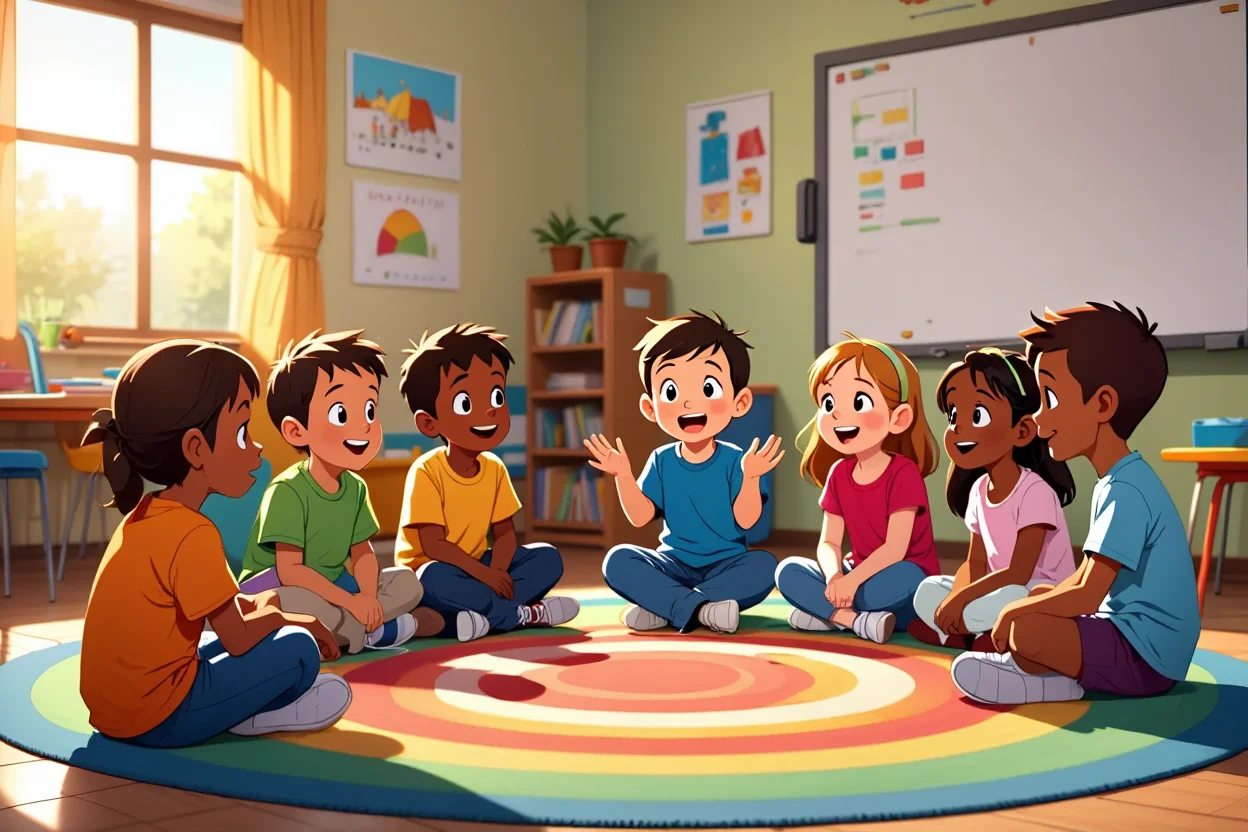
Students take turns sharing stories while partners practice maintaining eye contact and summarizing what they heard. Children learn to ask thoughtful follow-up questions instead of interrupting or changing the subject.
Age: 9-11 years
Educational Value: Develops listening skills and respectful communication.
2. Community Helper Visits
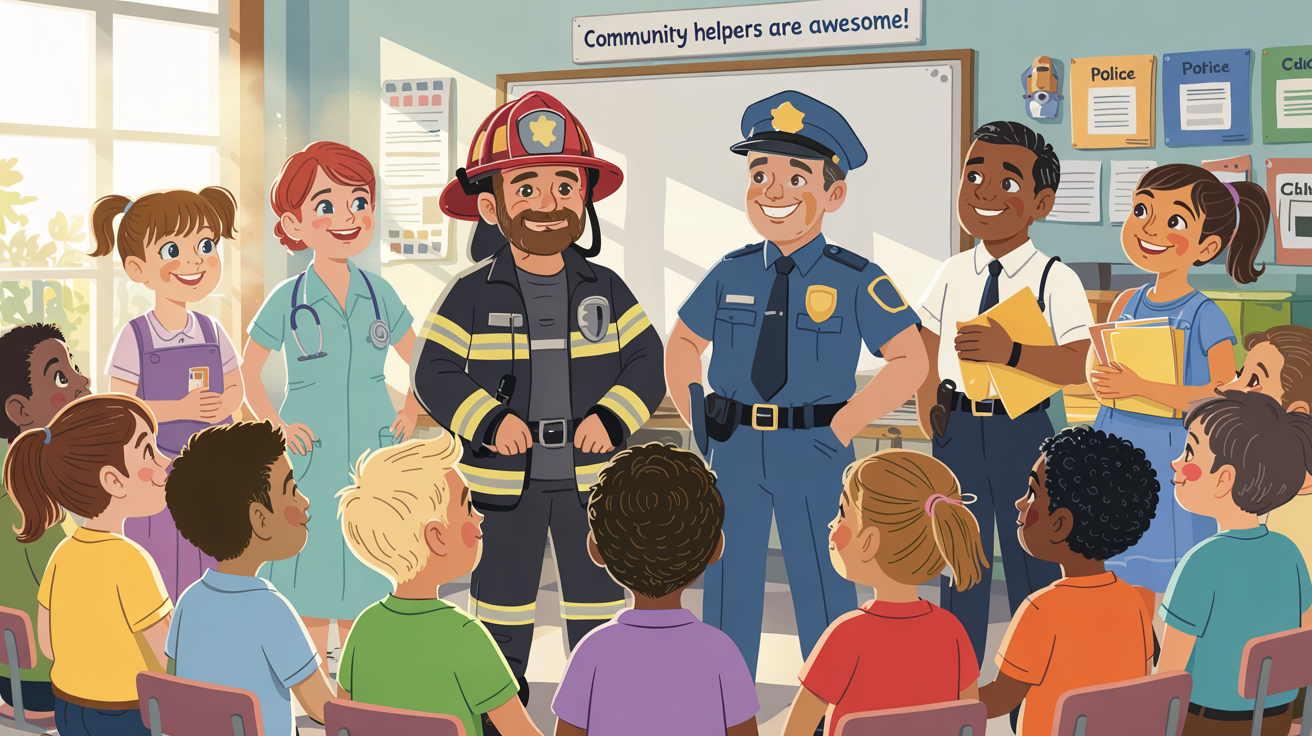
Invite community helpers to discuss their roles and how respect is vital in their daily work. Have children create thank-you cards for local community helpers, emphasizing the importance of showing gratitude and respect.
Age: 8-11 years
Educational Value: Teaches respect for community roles and service.
3. Compliment Ball Toss
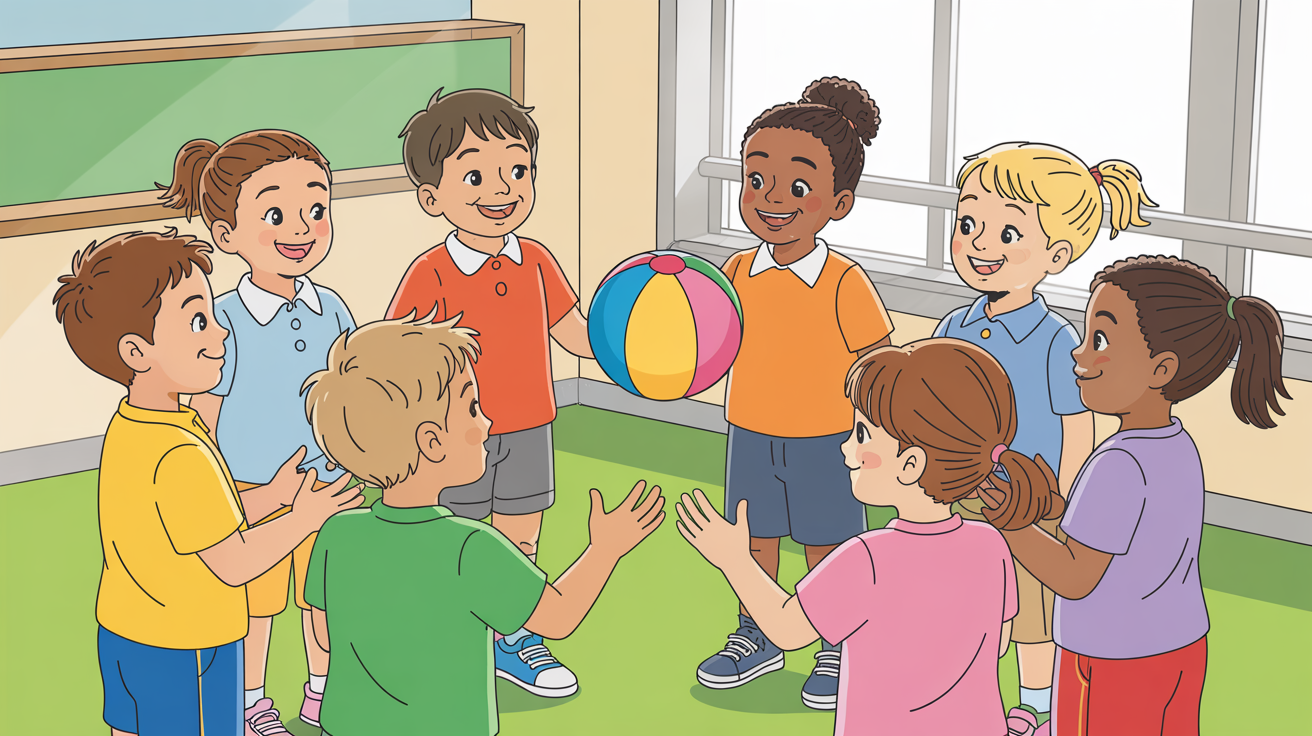
Children toss a soft ball to each other and give a genuine compliment to whoever catches it, practicing both respectful speech and active listening. This interactive game teaches kids to recognize positive qualities in others and express appreciation respectfully.
Age: 8-10 years
Educational Value: Builds self-esteem through positive peer interaction.
4. Compliment Circle
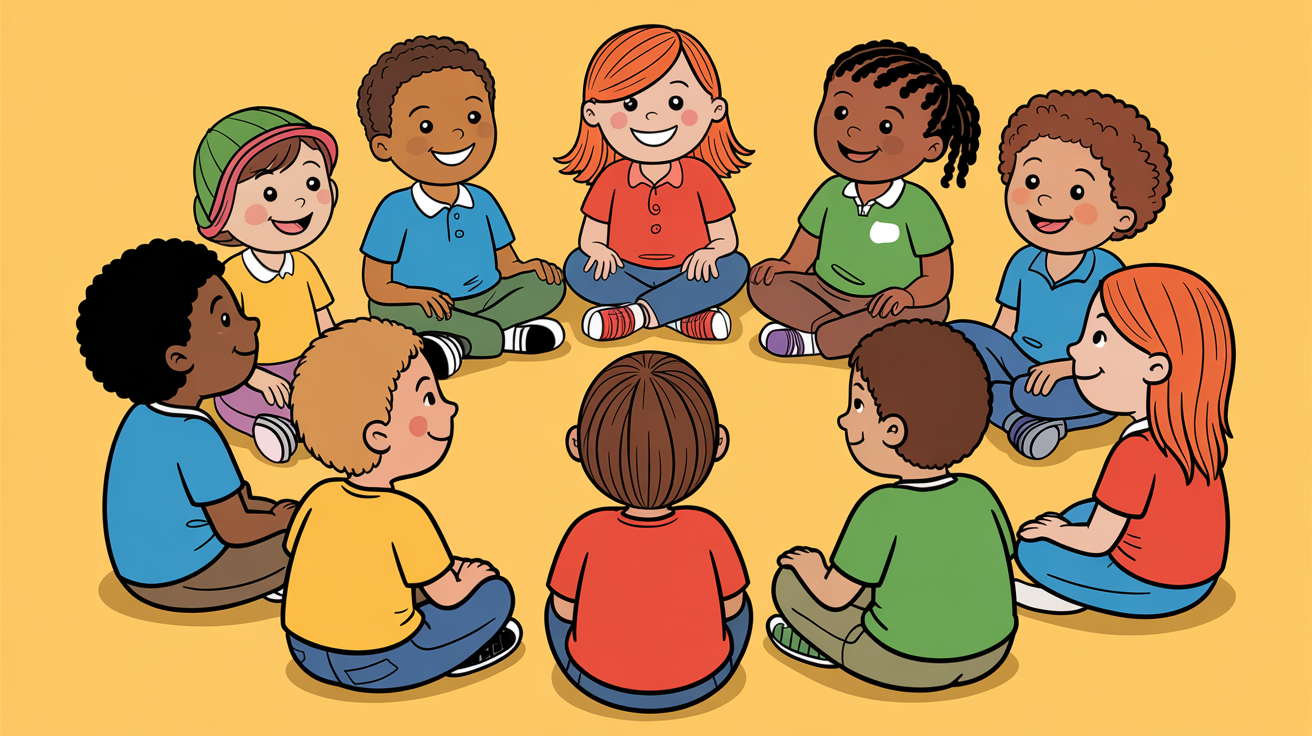
Children sit in a circle and take turns sharing specific compliments about the person to their right, practicing respectful language and genuine appreciation. This inclusive game teaches kids to notice positive qualities in all their peers and express respect in a thoughtful, respectful manner.
Age: 9-11 years
Educational Value: Strengthens peer relationships through recognition.
5. Compliment Treasure Hunt
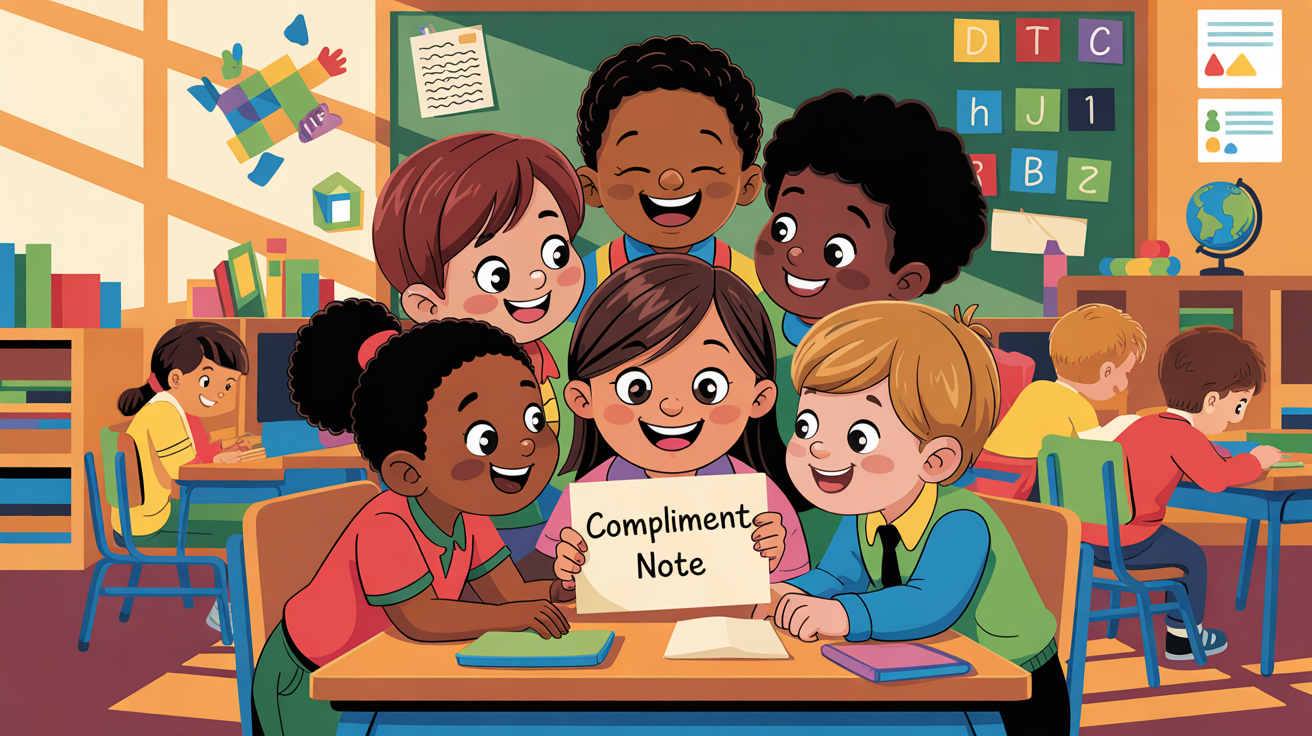
Hide positive affirmation cards around the classroom or playground for children to find and then share with a classmate they believe exemplifies that quality. This treasure hunt encourages kids to recognize respectful behaviors in their peers while practicing the art of giving sincere compliments.
Age: 9-11 years
Educational Value: Combines problem-solving with identifying others’ positive qualities.
6. Courtesy Cookie Decorating
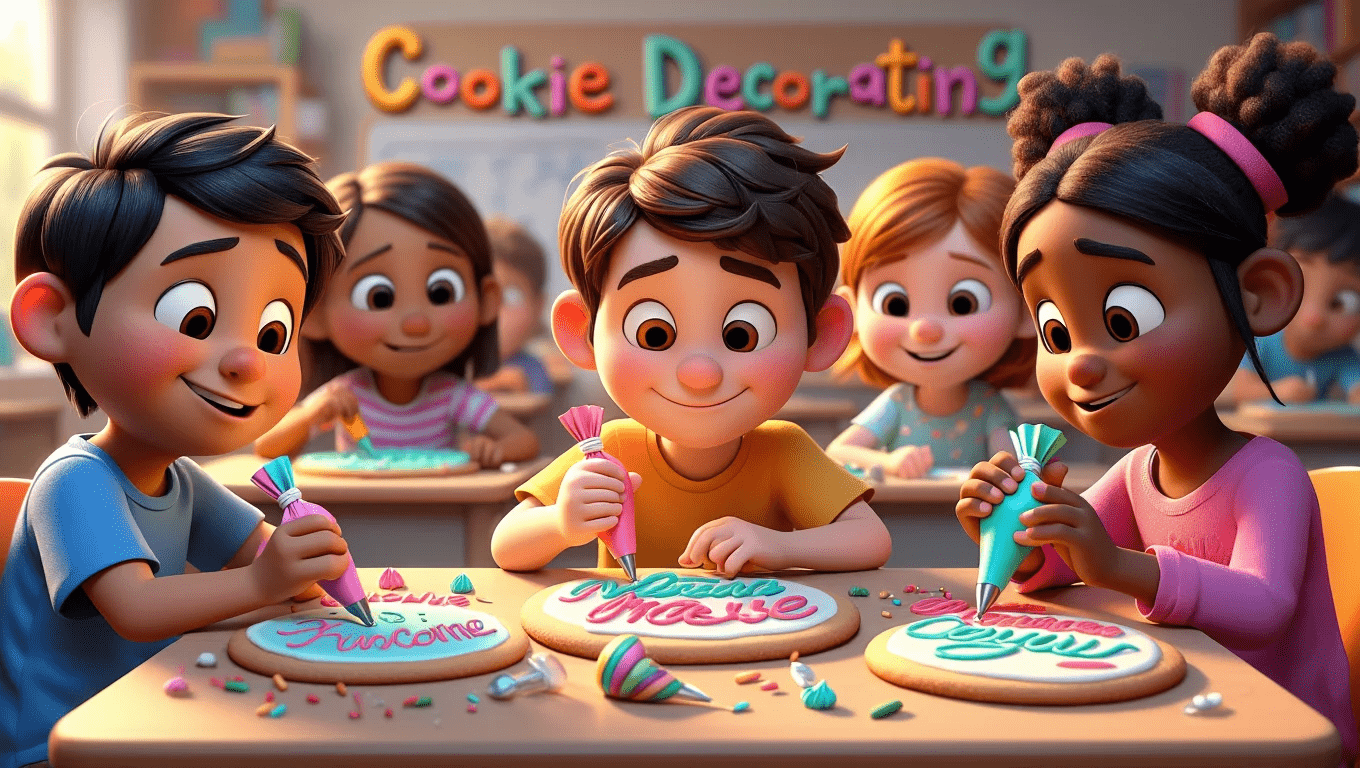
Children decorate cookies with polite phrases like “thank you” and “please,” reinforcing courteous language while enjoying a creative activity. After decorating, kids practice using respectful language as they share and compliment each other’s cookie creations.
Age: 8-11 years
Educational Value: Reinforces polite language through creative expression.
7. Courtesy Coupon Book
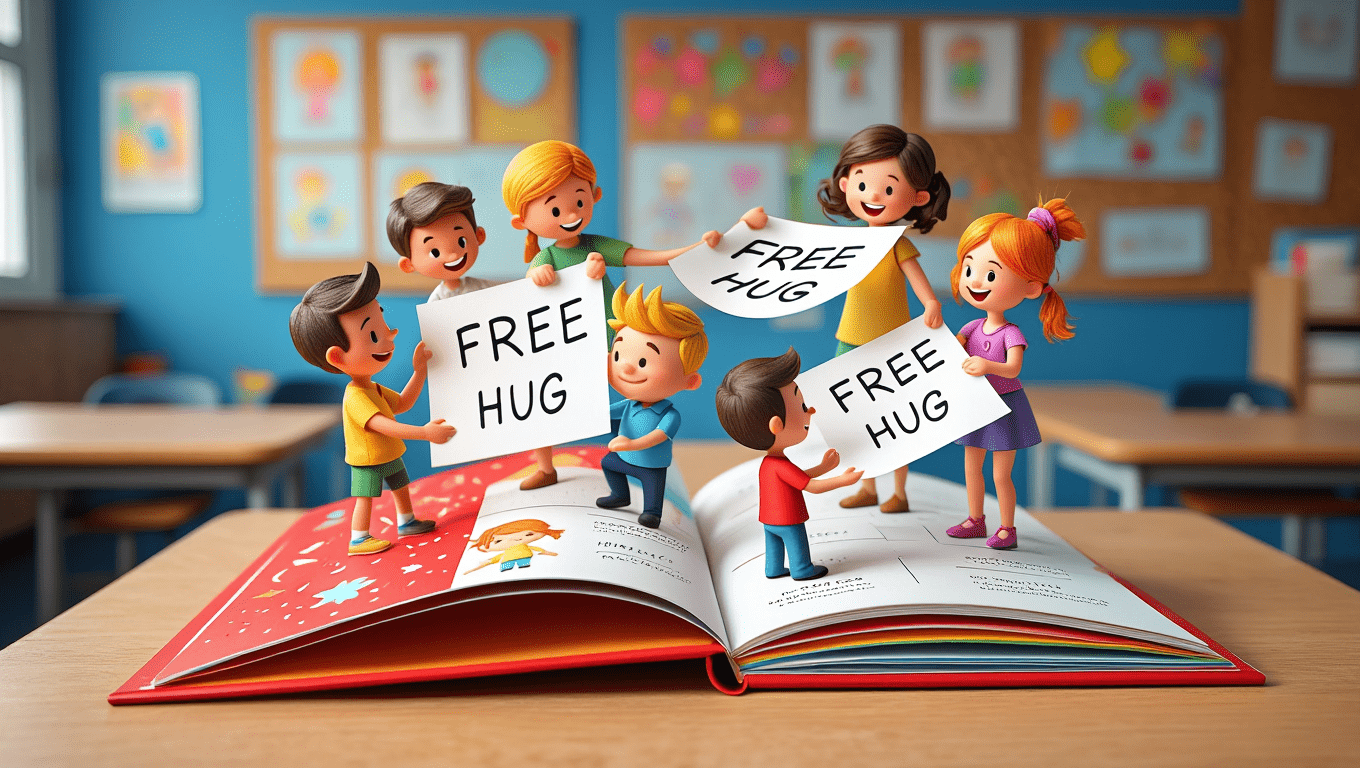
Children create personalized coupon books filled with respectful deeds they can perform for family members, such as “One free room cleaning” or “Will listen without interrupting for 10 minutes.” This activity helps kids understand how small acts of courtesy demonstrate respect for others’ time, space, and feelings.
Age: 9-11 years
Educational Value: Encourages thoughtful acts of kindness.
8. Empathy Emoji Drawing
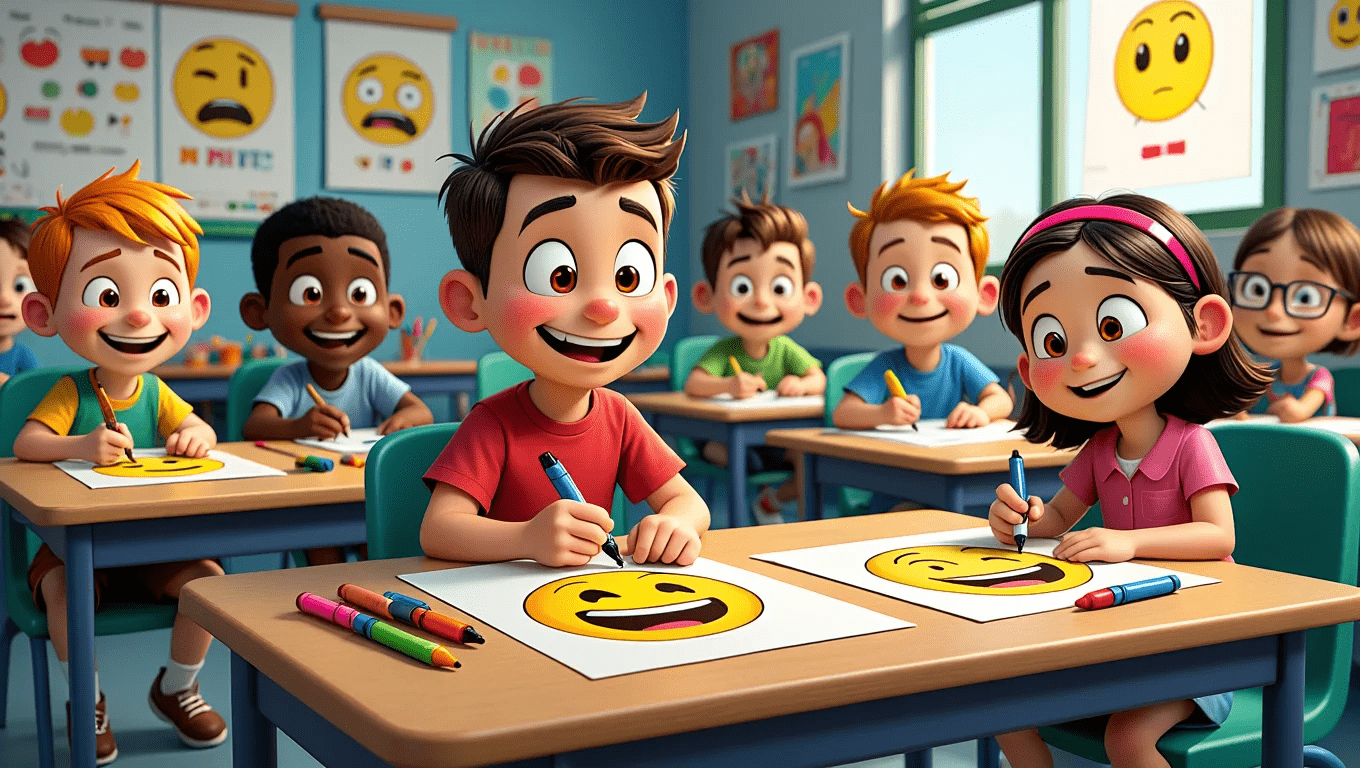
Children create empathy emojis that represent different emotions and then discuss how recognizing others’ feelings is essential to showing respect. This artistic activity helps kids visualize emotional cues, making it easier for them to respond with empathy and respect when peers express various feelings.
Age: 8-10 years
Educational Value: Improves emotional awareness and expression.
9. Empathy Walk
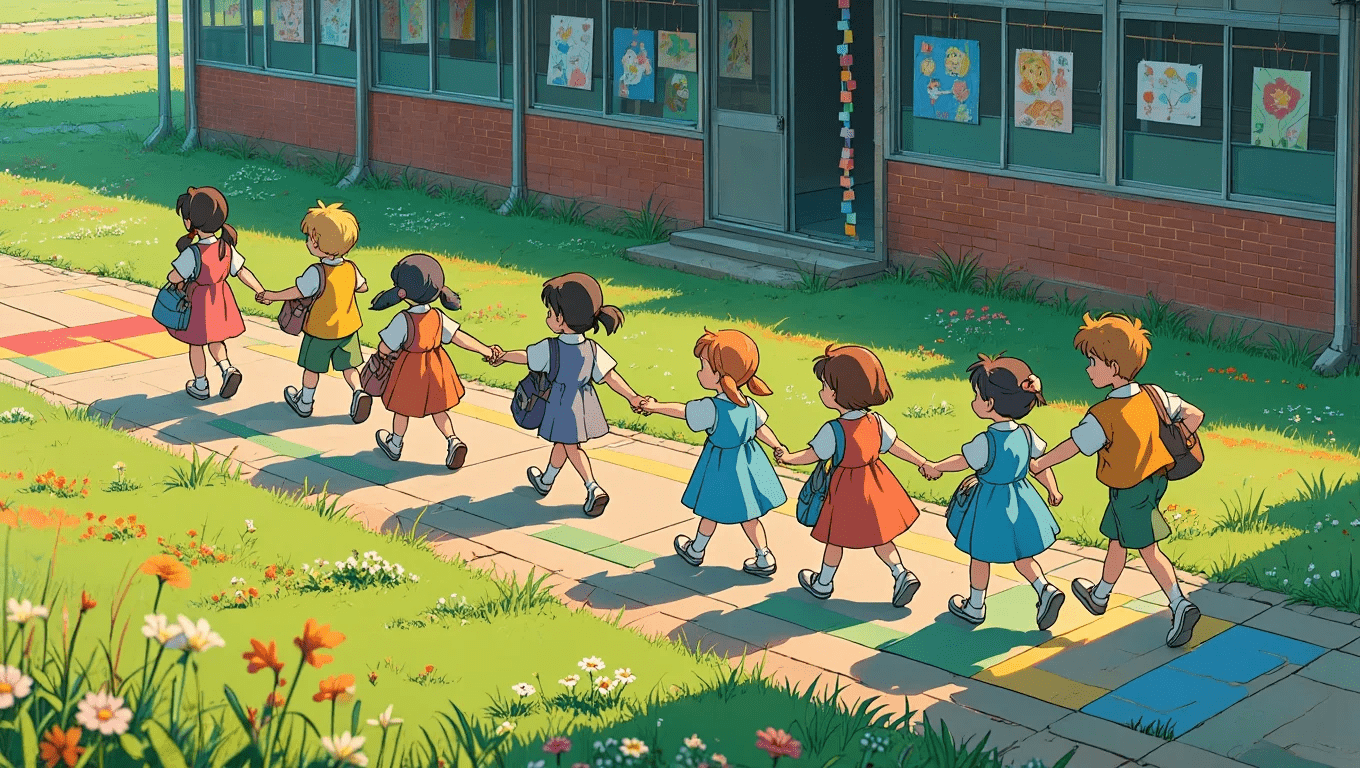
Guide children through an “empathy walk” where they experience scenarios from different perspectives, like walking with a blindfold to understand visual impairments. This activity teaches kids to respect differences by literally walking in someone else’s shoes, fostering compassion and understanding.
Age: 10-11 years
Educational Value: Develops perspective-taking and understanding differences.
10. Friendship Bracelet Making
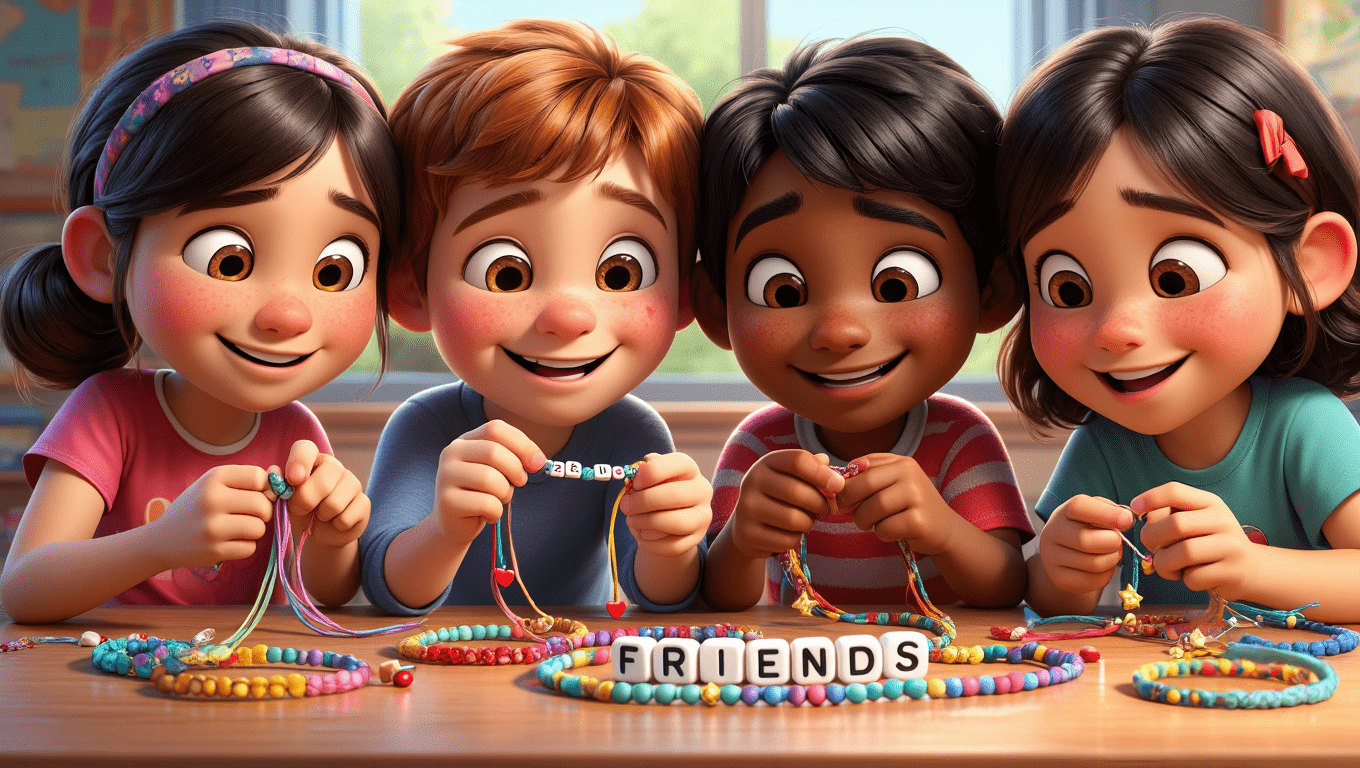
Children create colorful friendship bracelets to exchange, discussing how the different strands represent qualities of respectful friendships, such as listening and kindness. This craft activity provides a tangible reminder of the importance of treating friends with respect and appreciation.
Age: 9-11 years
Educational Value: Symbolizes positive relationships through collaborative craft.
11. Helping Hands Relay
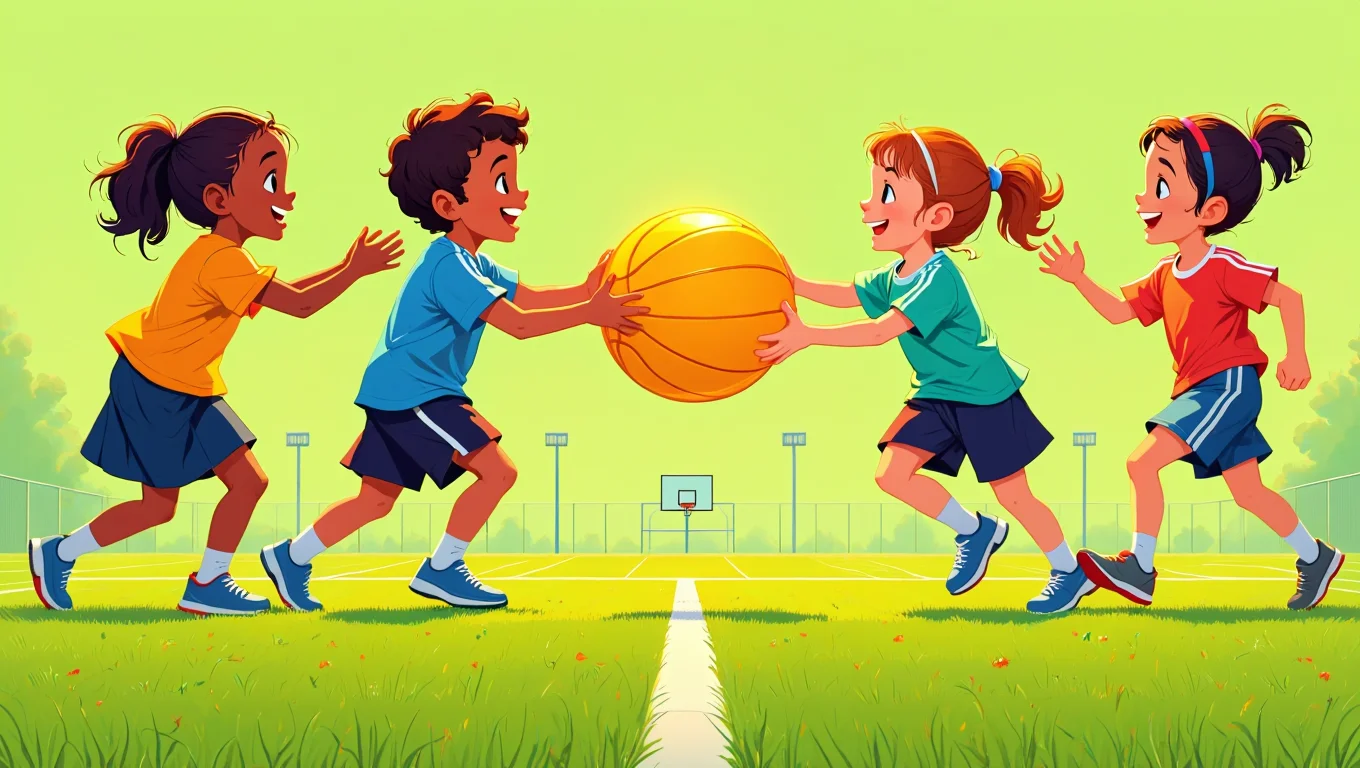
Teams compete in a relay race where each leg involves completing a helpful task, such as sorting recyclables or organizing books, demonstrating respect for their environment and community. This energetic activity teaches children that showing respect includes actively helping others and taking care of shared spaces.
Age: 8-10 years
Educational Value: Teaches teamwork and community support.
12. Kindness Bingo
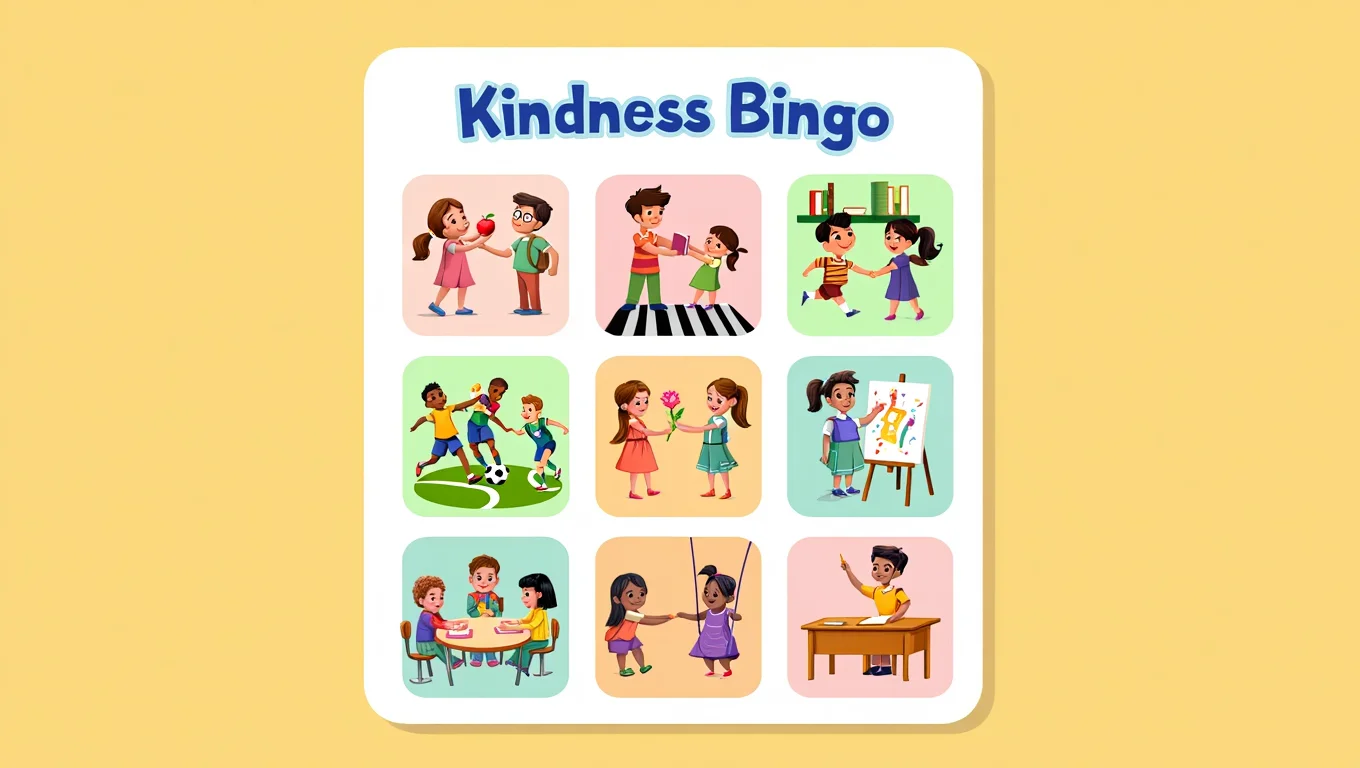
Create bingo cards with respectful actions like “hold the door for someone” or “use please and thank you,” encouraging children to complete kind deeds throughout the week. This interactive game transforms everyday acts of respect into a fun challenge, helping kids recognize opportunities to show kindness in their daily lives.
Age: 8-11 years
Educational Value: Gamifies and encourages respectful behaviors.
13. Listening Lighthouse Craft

Children create paper lighthouses that symbolize being a “beacon” of good listening, decorating them with images or words representing respectful listening behaviors. This craft reinforces that active listening is a cornerstone of respect, as lighthouses guide ships safely, just as good listeners help guide conversations.
Age: 8-10 years
Educational Value: Uses a metaphor to teach active listening.
14. Listening Pairs
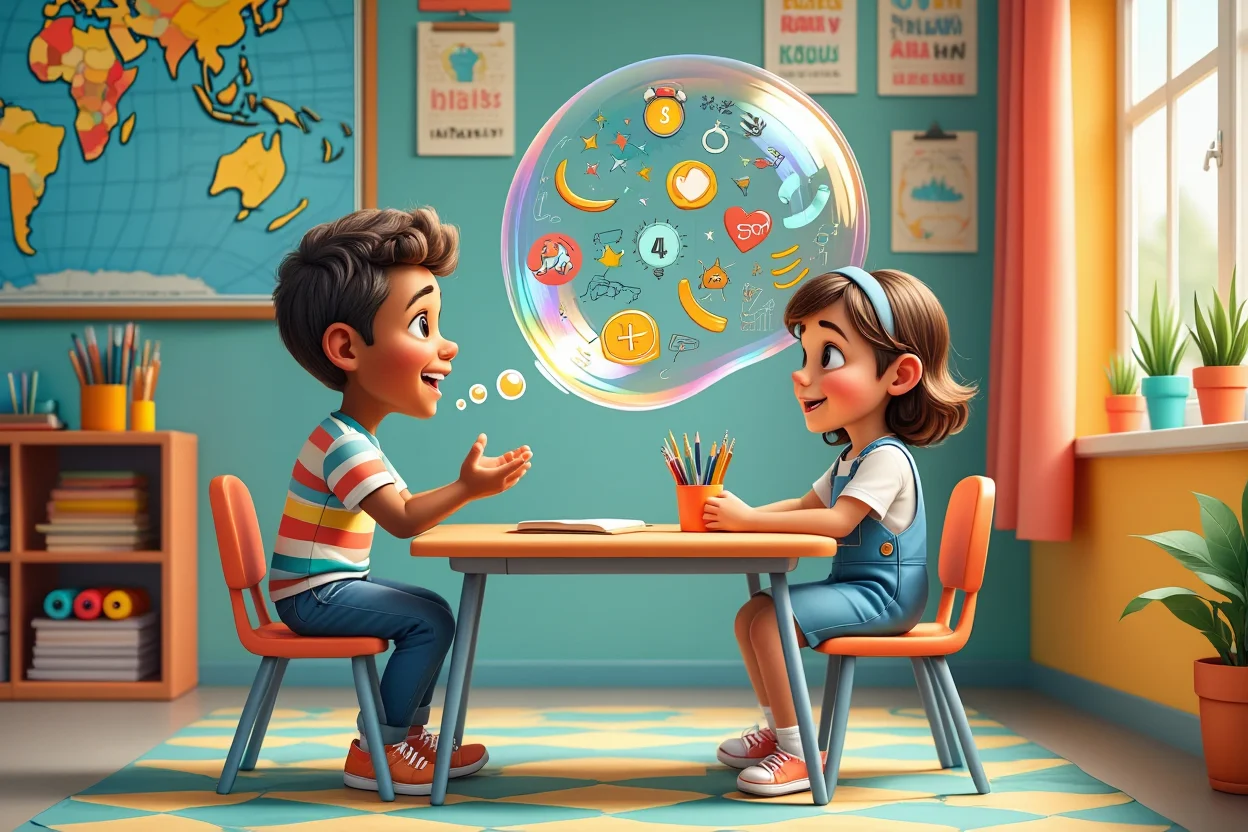
Pair children together for timed sharing sessions, during which one speaks about their interests while the other practices active listening without interrupting. After switching roles, partners demonstrate respect by accurately repeating what they heard, validating that attentive listening shows we value others’ thoughts.
Age: 9-11 years
Educational Value: Practices focused attention and information retention.
15. Listening Tower Game
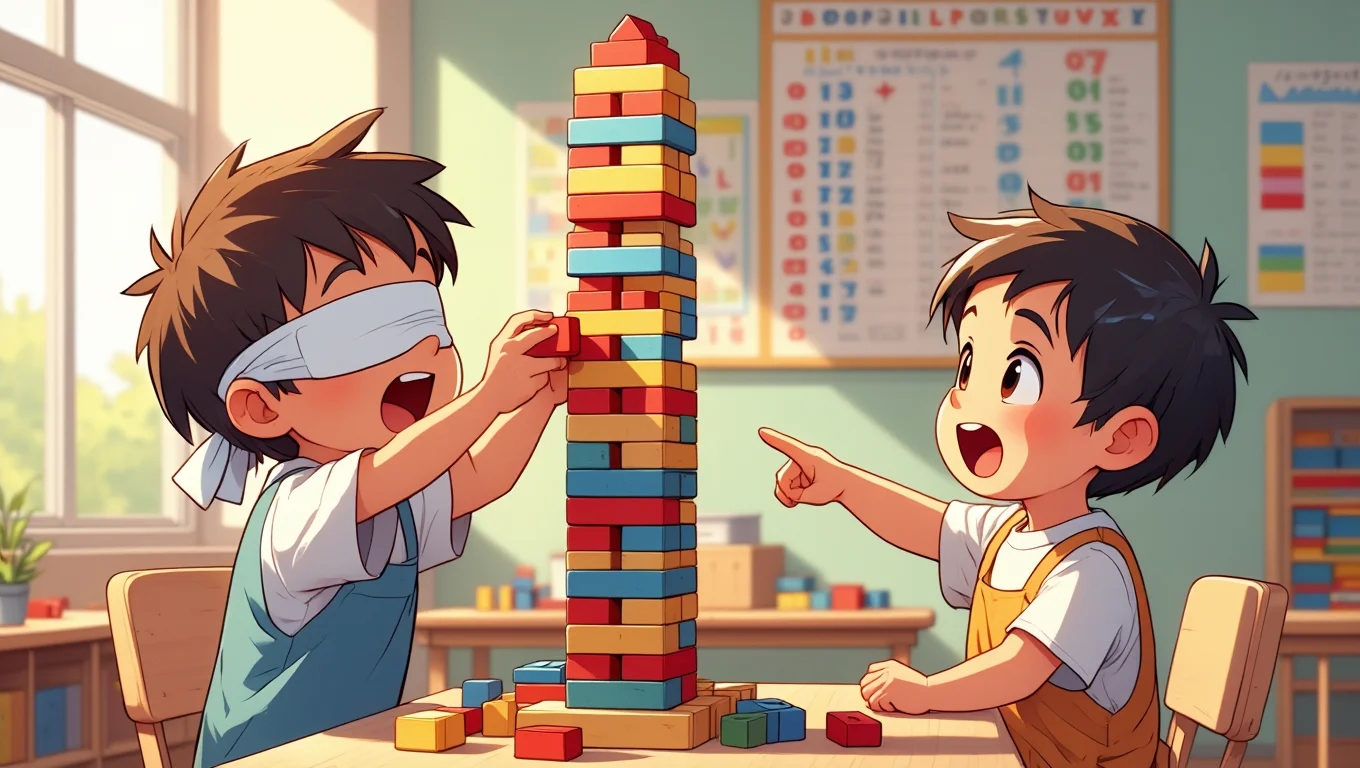
Children take turns carefully adding blocks to a tower while sharing something they learned from listening to their classmates that day. The growing tower visually represents how respectful listening builds strong relationships, and if it falls, the group discusses how miscommunication affects our connections.
Age: 8-10 years
Educational Value: Builds communication and following directions skills.
Some More Activities for Kids
16. Kindness Calendar
17. Kindness Quilt Squares
18. Kindness Rock Painting
19. Manners Charades
20. Manners Memory Match
21. Mirror Manners
22. Neighborhood Cleanup Crew
23. Polite Post Stand
24. Polite Post-It Notes
25. Polite Postcard Exchange
26. Polite Question Game
27. Respect Comic Strip
28. Respect Crossword Puzzle
29. Respect Journal Writing
30. Respect Mural Painting
31. Respect Pledge Creation
32. Respect Pledge Poster
33. Respect Poster Design
34. Respect Raffle Tickets
35. Respect Recipe Creation
36. Respect Reflection Circle
37. Respect Relay Race
38. Respect Role-Play
39. Respect Role-Rewind
40. Respect Scavenger Hunt
41. Respect Scenery Diorama
42. Respect Simon Says
43. Respect Skit Night
44. Respect Songwriting
45. Respect Treasure Box
46. Respect Web of Yarn
47. Respect Wheel of Fortune
48. Respectful Balloon Pop
49. Respectful Debate
50. Respectful Interview Role-Play
51. Respectful Relay Drawing
52. Respectful Storytelling
53. Respectful Telephone Game
54. Sharing Circle
55. Teamwork Tower Build
56. Thank-You Card Craft
57. Thank-You Chain
58. Thank-You Tree Craft
59. Thank-You Video Messages
Wrapping It Up
Now that we’ve explored these respect activities together, it’s time to put your new skills into action! Think about one way you showed respect today. Was it listening to a friend, helping at home, or using kind words?
Turn to someone near you and share your example. What did it feel like when you were respectful? How did others respond?
Remember, respect is like a muscle that grows stronger with practice. Which activity from today will you try again tomorrow? Give yourself a thumbs-up if you’re ready to be a respect champion!
Your Respect Challenge: This week, try a different way to show respect daily. Add a star to your calendar each day you succeed. How many stars can you earn?
Let’s make our world kinder, one respectful action at a time!
If you’re interested in more informational content on mothers and babies, feel free to click here and research other blogs that you might enjoy.
